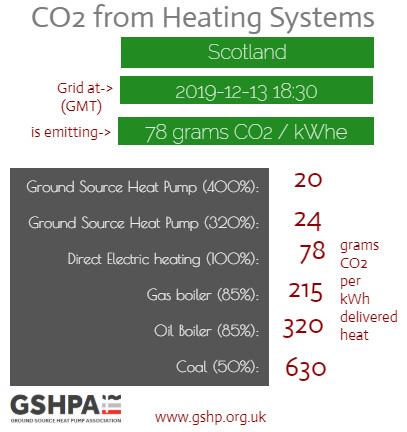The Climate Crisis needs Climate Action
The Met Office has said that 2019 was provisionally the 11th warmest year on record for the UK, with a mean average temperature of 9.42°C. All of the warmest ten years on record have occurred since 2002.
The new decade begins with news of further devastating fires in New South Wales and Victoria as Australia experiences its hottest months ever recoded.
Public perception of the dangers of igoring the climate crisis has risen dramatically in 2019 with the repeated assertion by Greta Thunberg that "we need to listen to the climate scientists and take action".
Public perception has risen to a level that that even politicians are now responding. Prime Minister Boris Johnson said in one of the earliest speeches after his general election victory that his goal is: "To make this country the cleanest, greenest on Earth with the most far-reaching environmental programme" and "you the people of the country voted to be carbon neutral in this election; you voted to be carbon neutral by 2050 and we'll do it."
It is, of course, easy for politicians to make rousing speeches about what might be achieved in 30 years time. However, Greta Thunberg's message is that we are experiencing a climate crisis now and we need action to curb it now.
The three principal needs for action are in:
- Decarbonisation of the electricity grid
- Decarbonisation of heating
- Decarbonisation of transport
Decarbonisation of the electricity grid
The UK has already taken action to reduce the burning of coal in power stations and to increase the use of wind power to generate electricity. The "carbon factor of the grid" has already fallen by half since 2014 and is on track to fall again by half by 2021.
Decarbonisation of heating
No equivalent progress has been made on the decarbonisation of heating. Only 4.5% of the UK's total heat demand in buildings is currently met by low carbon sources. Most homes (84%) are connected to the gas grid and heated primarily by gas boilers.
Domestic heat alone contributes 13% to the UK's annual carbon footprint – comparable to that of all petrol and diesel cars in the UK combined.
There are simple actions that can be taken to reduce carbon emissions from heating: we need to stop burning carbon compounds. Burning carbon compounds always realeases CO2 (and also other gases harmful to health). The well tried alternative is to use heat pumps instead – to transfer heat for domestic hot water and central heating.
BEIS should incentivise at-scale early uptake of low carbon heating, with a new scheme in place by 2021 when the Renewable Heat Incentive comes to an end. This could include consumer support such as grants and VAT incentives, and industry-wide measures such as a low carbon gas obligation.
Decarbonisation of transport
The decarbonisation of transport will rely on the electrification of transport – in much the same way as decarbonisation of heat will rely on the electrification of heat.
The UK has began the transition to electic cars in a small way. Around 2% of new car sales in the UK are now of electric vehicles. The equivalent figure for Norway is around 60% of new cars. This dramatic discrepancy is because the Norwegian government has taken the decision to encourage the use of electric cars by providing fiscal encouragement for the transition and allowing electric cars to use bus lanes and cheaper (or free) city parking.
Climate Action
It is time for the government to take action. It should do so as soon as possible, well in advance of the COP26 UN Climate Change Meeting in Glasgow in October 2021, in order to have the moral authority to encourage other countries to take specific steps to curb global CO2 emissions within one generation.
See Renewable Heating See Renewable Cooling



